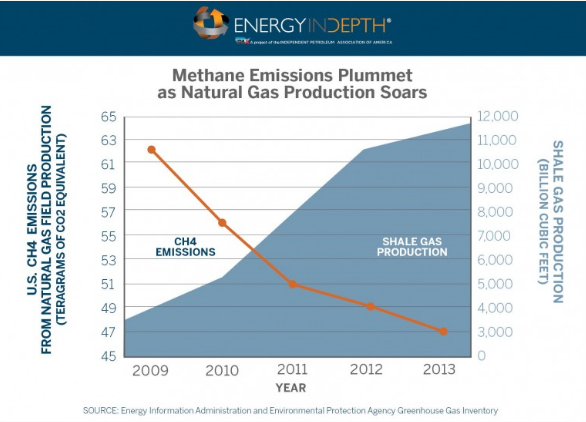
We recently wrote about the push by the 115th Congress to use the Congressional Review Act (CRA) to stop several 11th-hour rules issued in the waning days of the Obama Administration. According to one estimate, a record 38 “major rules” (that is, costing $100 million or more) were promulgated by federal agencies after President Trump’s election victory on November 8th.
While Congress is expected to vote on several rules early in 2017, energy-related measures will dominate the first tranche of resolutions, including the Bureau of Land Management’s so-called “Methane and Waste Reduction Rule” covering methane leaking, venting, and flaring. Finalized on November 18th, 2016—ten days after the election—this rule effectively handcuffs the energy revolution by imposing unnecessary new controls and restrictions on oil and natural gas production.
While energy companies have every incentive to minimize venting and flaring of natural gas from oil and gas wells, they sometimes must do so either for safety purposes or due to a lack of sufficient infrastructure to transport the natural gas to market. Nonetheless, through technological innovation, industry has successfully and voluntarily reduced methane emissions, cleaning the air even as natural gas production has grown significantly. Information from the Western Energy Alliance and Energy-in-Depth illustrates the extent of this success story:
- Methane emissions from natural gas production have declined by 38% since 2005 without federal regulation while gas production has increased by 33% across the nation during that time. Methane emissions from oil production have also fallen by 21% since 1990.
- The simultaneous increase in natural gas production and decrease in methane emissions is thanks to a plummeting leak rate. The Environmental Protection Agency estimates system-wide natural gas leakage rates at 1.1%. Two recent studies by the Environmental Defense Fund and the University of Texas find that methane emissions from natural gas production sites are even lower, 0.38% of production.
Though ostensibly intended to reduce methane emissions and increase government royalties, BLM’s 11th hour rule is so onerous and costly that it will make energy development uneconomical in many areas. Rather than strengthen environmental practices, this command-and-control regulatory approach from Washington bureaucrats will simply chase energy developers away, ironically reducing royalty revenues in the process. Adding to this irony is the fact that BLM’s inaction on pipeline permits means companies, with no transport options, have no other option but to...vent and flare.
Ultimately, this regulation handcuffs the energy revolution, makes us more dependent on foreign sources of energy, and translates to higher costs for families and businesses. A vote to eliminate this costly rule will help further President Trump’s and the Congressional majorities’ desire for greater domestic energy production, infrastructure development, and jobs.

